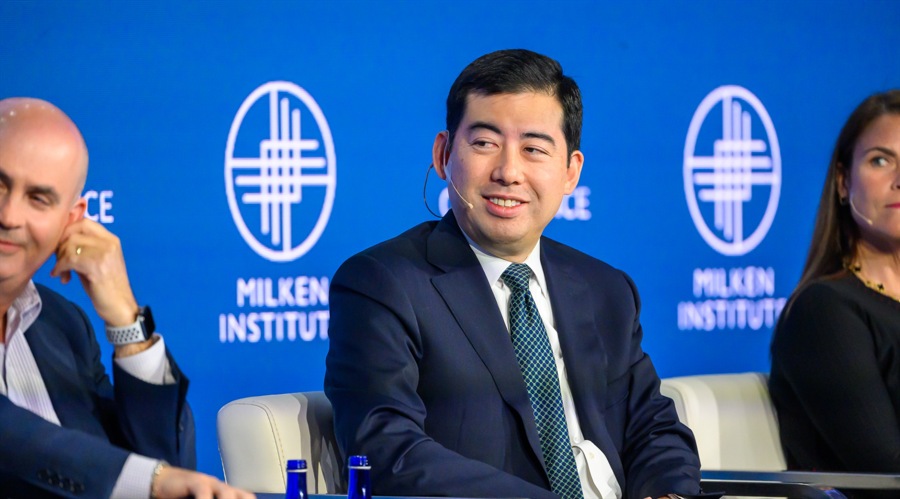The
Securities and Exchange Commission (SEC) is experiencing a sweeping
transformation under interim chairman Mark Uyeda, who has implemented
significant policy changes before President Donald Trump’s nominee Paul Atkins
is confirmed, according to Bloomberg.
Acting SEC Chief Remakes
Agency Before Trump Nominee Takes Helm
In less
than two months as
acting SEC chief, Uyeda has orchestrated a dramatic shift in the agency’s
regulatory approach, particularly regarding cryptocurrencies. His first public
move came within a day of taking the interim position in January, when he initiated
a revamp of the SEC’s cryptocurrency policies.
“You
have businesses to run, you don’t exist to respond to SEC proposals,”
Uyeda told chief financial officers at a recent conference, signaling the
agency’s new direction. His remarks reflect the SEC’s return to what he
describes as its “narrow mission to facilitate capital formation, while
protecting investors and maintaining fair, orderly and efficient markets.”
Acting Chairman Mark T. Uyeda delivered keynote remarks at ICI’s Investment Management Conference today. https://t.co/W6sYt92mGb pic.twitter.com/zBdKIJNHNF
— U.S. Securities and Exchange Commission (@SECGov) March 17, 2025
The
regulatory changes have been swift and substantial. The
SEC has dropped more than 10 high-profile crypto-enforcement cases,
extended compliance deadlines for three new rules, declared most memecoins
exempt from securities laws, and terminated litigation related to
climate-reporting regulations.
“There
has never been anything this dramatic or far-reaching as what you’re seeing
now,” Joel Seligman, a law professor at the University of Washington in
St. Louis and SEC historian, told Bloomberg.
Staffing Overhaul and
White House Directives
The
transformation extends beyond policy changes to include significant staffing
adjustments. The
agency has offered early retirement incentives and plans to eliminate leases
for certain regional offices. According to Bloomberg, the SEC has also
decided to cut senior-most positions across regional offices, though current
position holders aren’t being forced out.
These
changes, coupled with directives from the White House and
the new Department of Government Efficiency (DOGE), have reportedly created
an atmosphere of uncertainty within the agency. Bloomberg reports that staff
anxiety is high and morale is low, with many employees actively seeking new
positions.
Five
academics, including Seligman, expressed concern in a public letter this month
about the direction of the SEC. “With growing concern, we fear that we are
watching the SEC face a death by 1,000 cuts,” they wrote. “The end
result might be a shell of a former self, as the SEC becomes an agency with
little power, capacity or independent judgement.”
Business Community Sees
Opportunity
The
business community has been quick to respond to the regulatory shift. The
Managed Funds Association submitted a 13-page letter outlining
business-friendly policy recommendations, while SIFMA, representing
broker-dealers and financial services firms, urged
the SEC to pause fee collections related to the Consolidated Audit Trail.
The SEC has
already implemented changes aligned with some of these requests. In February,
the regulator exempted personally identifiable information from CAT storage
requirements and extended compliance deadlines for several rules, including
those related to Treasury trade clearing and short-position reporting.
Atkins Awaits
While Uyeda
serves as interim chairman, Trump’s
nominee Paul Atkins, who previously served as SEC commissioner from 2002 to
2008, awaits confirmation. According to Bloomberg, the Senate Banking Committee
is looking to hold Atkins’s confirmation hearing on March 27, though he has yet
to file his final financial disclosures.
While
regulatory priority shifts are normal during leadership transitions, the
current changes are distinguished by their scope and the influence of White
House directives.
“From
a policy perspective, much of this was expected,” Kimberly Hamm, a partner
at Mayer Brown and former chief counsel to ex-SEC
Chair Jay Clayton, told Bloomberg. “But the backdrop of the rapid-fire
executive orders and federal workforce changes is what makes this
challenging.”
This article was written by Damian Chmiel at www.financemagnates.com.
Source link




